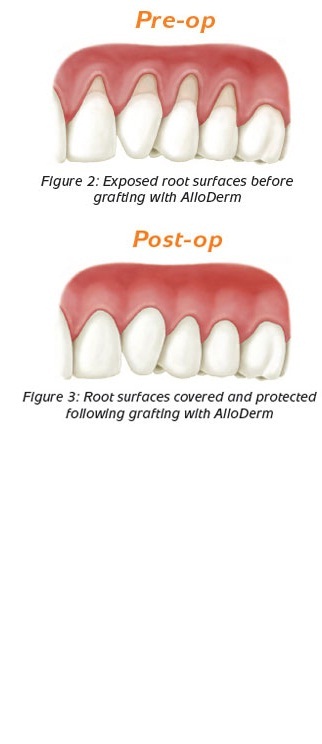
Periodontal surgery is treatment for any gum disease that remains after your dentist has cleaned your teeth. Gum disease is caused by the germs (bacteria) which live in your mouth. The bacteria stick to your teeth, irritate the gums and make them bleed. Gum disease can eventually destroy the gum and bone which support your teeth.
You will have already received some treatment for your gum disease. This would have included teaching you how to clean your teeth thoroughly to remove the germs (plaque) above the gum. The dentist or hygienist will have cleaned (scaled) your teeth to remove tartar and plaque above the gum. But you still have some gum disease remaining which needs periodontal surgery to treat the gums and surrounding teeth and bone.
What happens during the Periodontal Surgery?
- You will be given a local anaesthetic injection to numb the gum.
- The procedure then involves the careful use of fine powered and hand operated cleaning instruments on the tooth surfaces.
- Occasionally we will remove some of the gum to reshape it.
- Once we have cleaned the roots the gum is replaced and held in place with a few stitches that will be removed seven to ten days later.
Benefits Of Periodontal Surgery?
By lifting the gum away from the teeth we can see the roots better and perform more thorough cleaning and plaque removal, allowing us to control the gum disease better. By reshaping the gum we can make it easier for you to clean the teeth and maintain better gum health. However, the result of the surgery will depend on how well you continue to brush your teeth in the future and how severe your disease was at the start of treatment
Risks Of Periodontal Surgery
1. The gums will feel sore after the surgery and you may need to take painkillers, for example paracetamol, for a few days (as prescribed on the packet).
2. Occasionally the gums may bleed after surgery and you may also experience bruising and swelling of the gums or the face near the treated teeth.
3. The teeth may feel looser after the surgery but this is usually temporary.
4. Your teeth may become sensitive to hot, cold or sweet substances.



 How to Reach Us
How to Reach Us  Photo Gallery
Photo Gallery